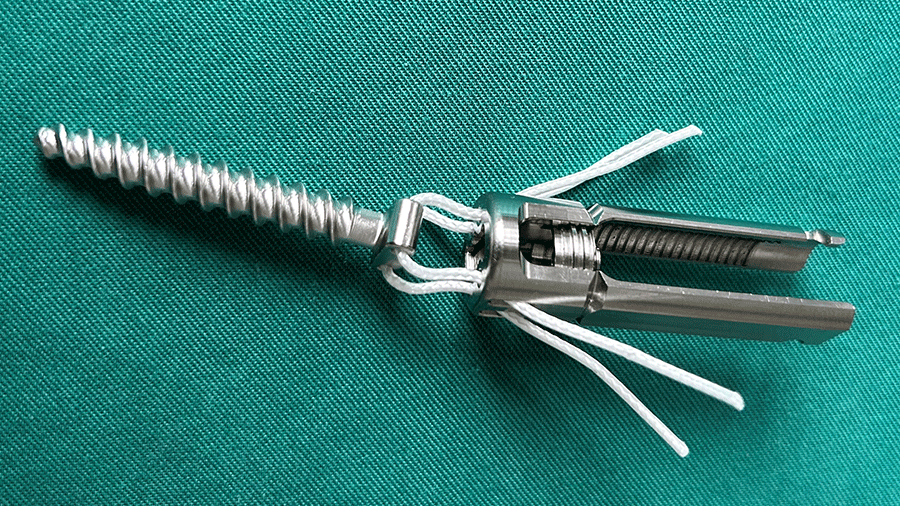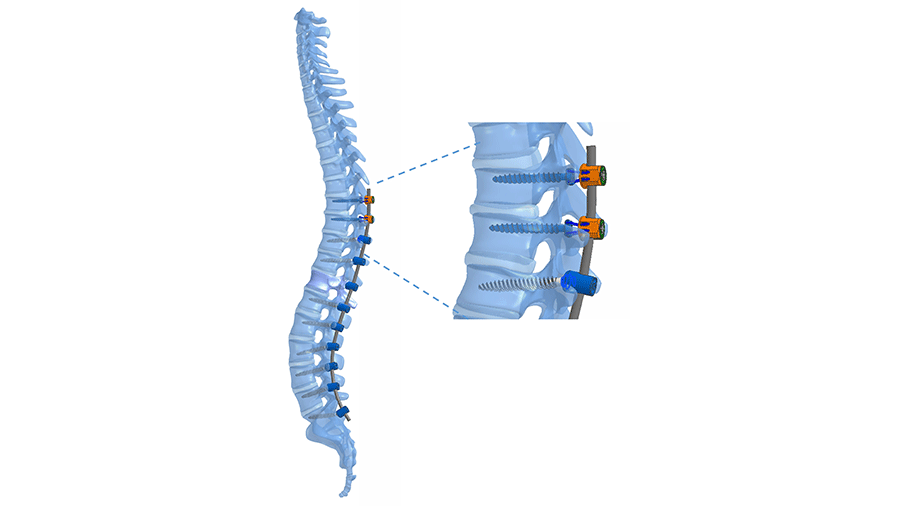Safe, effective, and easy to use: Development Incubator project offers solution to reduce PJK and improve clinical outcomes

Proximal junctional kyphosis (PJK)—a common complication following instrumented treatment of adult spinal deformity—is a patient problem that consultant spine surgeon Heiko Koller, MD, has encountered throughout his 17-year career. With support from the AO’s Development Incubator, he’s poised to solve that problem with his invention: the safe, effective, and easy-to-use Tether Pedicle Screw.
“About 30 percent of adult patients who have had long fusion surgery will have at least PJK, and 30 percent of these will need revision surgery,” said Koller, who practices at Asklepios Klinikum in Bad Abbach, Germany. “PJK really is a societal problem associated with long fusions and it is one of the most common and feared complications.”
Koller said stress riser at the junction between instrumented and non-instrumented levels of the spine can lead to overloading and degeneration of the levels adjacent to the instrumented segment of the spine, affecting not only the intervertebral disc but also the vertebral body. In extreme cases of PJK, the topmost instrumented level can fail due to screw pullout, leading to further collapse of the spine and exaggerated kyphosis.
“Current methods for preventing PJK do not offer all crucial elements: safety, efficacy, and ease of use,” he said. “Dealing with these problems every day in kids and adults, I wanted to find a solution.”
A new concept to prevent PJK
Koller’s Tether Pedicle Screw reduces stress discontinuity between the instrumented and non-instrumented levels of the spine. Affording a more gradual transition from the stiff section of the spine (which is fused by instrumentation during surgery) and the still-mobile sections above, the Tether Pedicle Screw is expected to reduce the likelihood of PJK while protecting the adjacent intervertebral discs from further degeneration and the vertebral bodies from non-physiological stress patterns. Koller said that gradual transition also benefits the topmost level of the fixed segment.
The Development Incubator project, which is being carried out in close collaboration with Attiswil, Switzerland-based IGNITE-concepts and its lead engineer, Tom Overes, got underway in June 2021. Today, a number of key milestones have been achieved, including the production of implants and instruments at the AO Research Institute Davos (ARI) prototype shop and the filing of a patent application in February 2022. Additional mechanical testing and a formal presentation to the AO Spine Technical Commission lie ahead, and then the project team will seek a commercial partner to finalize the development and make the Tether Pedicle Screw available to surgeons.
“The AO is a strong partner, and the Development Incubator is a unique resource: It has all of the resources—financial support, project management, prototyping, and mechanical testing capabilities under one umbrella. What was fundamental with the Development Incubator was its willingness to support my project and its resources which allowed us to conduct the necessary studies to achieve proof of concept,” Koller explained.
Koller’s advice to would-be innovators is straightforward.
“I would tell inventors and surgeons with product ideas and solutions to clinical problems: Do your homework, be passionate about your project, and have the courage to ask the Development Incubator for support,” he said.
You might also be interested in:
- Find out how we drive your idea toward success with expertise and funding
- Learning about Development Incubator projects
- Learning about Strategy Fund projects
- AO's innovation funding frequently asked questions


